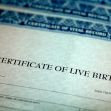The District Court of Nevada filed a decision in favor of a transgender man regarding his right to obtain a U.S. passport in his identifying gender. Oliver Bruce Morris had been denied a passport in 2018 for not submitting certification from a doctor that he had completed the medical treatment necessary to fully transition to the male gender.
Oliver Bruce Morris, formerly known as Chanesse Olivia Morris, was born in California in 1993 and has identified and lived as a male since January 2015. When Morris applied for his passport in 2018, he submitted three forms of identification along with a DS-11 Application for U.S. Passport: a Nevada Driver’s license listing his gender as male, a Birth Certificate indicating his gender as female, and a Court-Ordered Name Change displaying his legal name change.
In late October 2018, the Department of State Passport Services issued Morris an Information Request Letter (IRL) requesting certification from a doctor on office letterhead that he had completed medical treatment for his transition to male. After no response, he was sent a “FINAL REQUEST” IRL again requesting the certification document.
Morris responded to the request stating he would not be supplying the documentation “because he could not afford gender transition treatment, and the requirement violated his constitutional rights.” His health insurance through Anthem Health Insurance does not cover reassignment surgery and he must receive “hormone therapy treatment provided by a nurse practitioner, which his health insurance covers.”
In May 2019 the Department of State issued a denial letter stating he was not being issued a passport in his identified gender because he failed to comply with the request for a doctor’s certification. Morris then sued the Department of State stating he had an unfair burden of proving his gender compared to a cisgender individual.
State Department specialists use the Foreign Affairs Manual (FAM) to guide their decision-making process in passport issuance. The 8 FAM Passports and Consular Birth of Reports Abroad is condensed guidance based on law codified in the Code of Federal Regulations and the United States Code.
8 FAM 403.3 Gender Change requires a “signed, original certification or statement, on office letterhead, from a licensed physician who has treated the applicant for her/his gender-related care or reviewed and evaluated the gender-related history of the applicant.” Additionally, only a letter from a doctor of osteopathy (DO) or a medical doctor (MD) is acceptable. According to the FAM, nurse practitioners are among the medical certifications not recognized as an authority to certify a gender change.
Morris had four main arguments against the State Department’s decision. He stated that the denial of his passport “was arbitrary and capricious in violation” of the Administrative Procedure Act (APA); it exceeded the State Department’s “authority in violation of the APA”; it violated his “substantive due process rights guaranteed under the Fifth Amendment”; and finally that it violated his equal protection rights by “subjecting him to an increased burden to verify his gender that similarly situated cisgender passport applicants do not have to face.” Morris went on to grieve that this policy interferes with his “fundamental dignity and autonomy to express his personal identity.”
The State Department, under Secretary of State Michael Pompeo, argued to dismiss the claims because Morris did not “sufficiently allege that burdened a fundamental right” nor did they discriminate against him “on the basis of his transgender status.” Pompeo used 22 C.F.R. § 51.23(a)–(b) to emphasize that each applicant “has the burden of establishing his or her identity” when applying for a U.S. passport, and that identity encompasses gender.
On November 23, 2020, District Judge Gloria Navarro for the District Court of Nevada ruled in favor of Morris’ equal protection argument. She wrote in her opinion that the policy is discriminatory “because he is a transgender man who cannot supply the required physician certification as he has undergone hormone therapy administered by a nurse practitioner” and not by a medical doctor as required by State Department policy. She further stated that if Morris were “cisgender, he would not have to verify his gender identify beyond the submission of consistent identification corroborating his gender.”
Navarro ordered the State Department to re-examine the passport application, and if all other requirements are met, to issue him a full 10-year validity passport in his male gender, without requiring the certification.
Unfortunately, while this decision is a win for Oliver Morris, Judge Navarro limited her ruling to this particular case. She declined to rule on whether the policy was “facially constitutional” which won’t require the State Department to change the policy for other transgender applicants. The State Department has yet to publish whether it will appeal the decision to a higher court.
Health insurance coverage for reassignment surgery or health care related to sex change varies by state in the United States. Many insurance companies still exclude these treatments from coverage, making it impossible for some to obtain the necessary documentation needed to satisfy the State Department’s requirements for a passport in a gender other than on their original birth certificate.
Like health insurance, each state is different about its policy on amending the gender on an original birth certificate. While the State Department requires transgender individuals to prove their transition through documentation, they only require this if there is a disparity in the identifying evidence the applicants provide.
If an applicant has never been issued a passport before or has never been issued a passport in their birth gender, and the state they were born in allows for a gender amendment to their birth certificate, it would be difficult for passport specialists adjudicating the application to justify requiring such documentation. This is especially true if the state that allows for amendments does not mandate that the birth certificate designates it has been amended.
Not only does this case highlight the contrasting treatment between transgender and cisgender applicants, but it also raises the concern that there is an unequal privilege for some applicants based solely on the state they were born in. Additionally, as more states allow individuals to select “X” as a nonbinary gender descriptor on state-issued identification cards and driver’s licenses, it raises the question of what gender they will be forced to choose between for their U.S. Passport, and whether that again is a violation of their Fifth Amendment rights.






